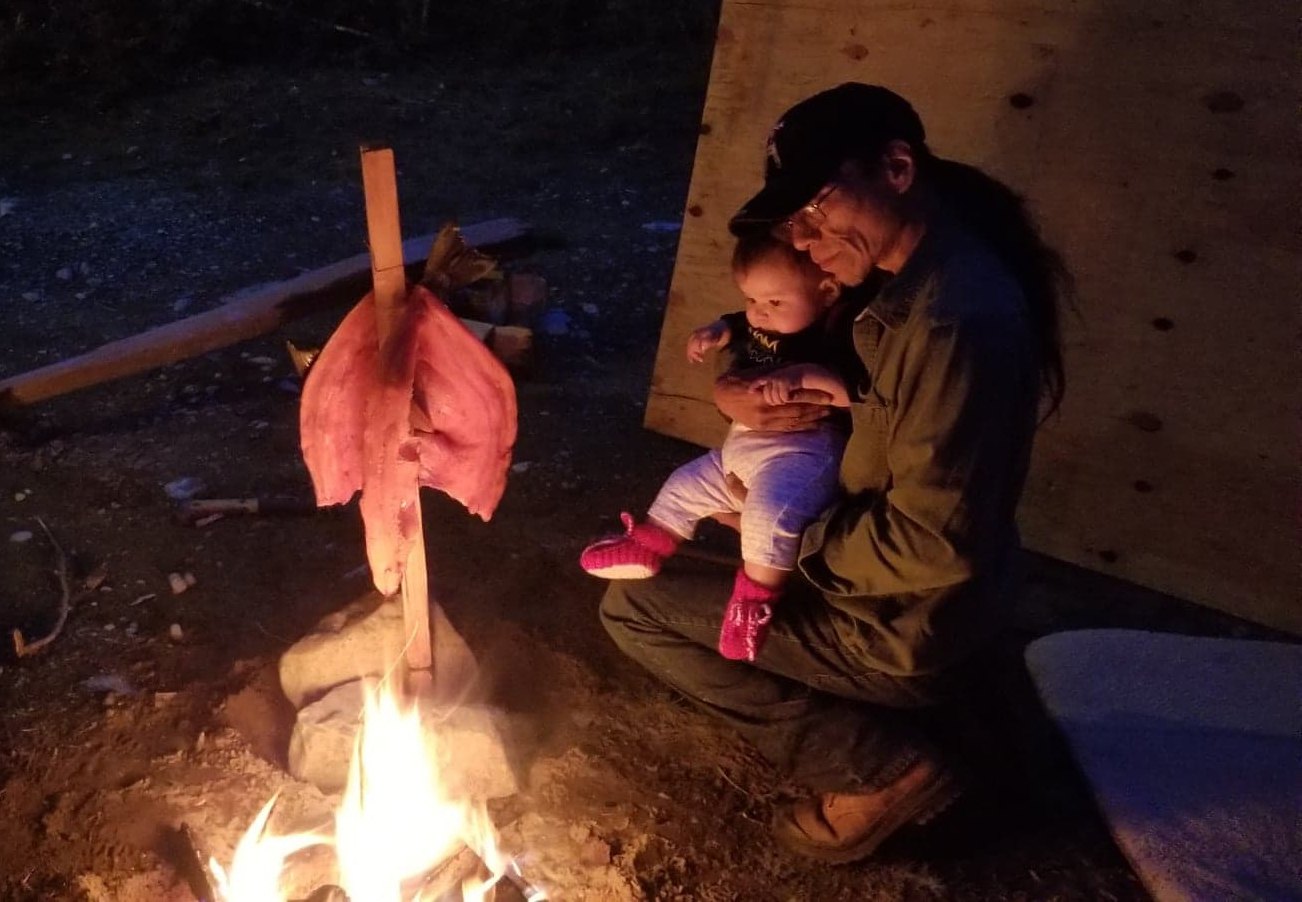A message from Kathleen Yung, FNHA's Healthy Eating and Food Security Specialist

How can we use culturally safe, trauma-informed practices in connection to the foods we eat? That was one of several topics explored during the recent annual gathering of Dietitians working in Indigenous Health and Knowledge Keepers Network.
The presenters explored food-related experiences during the pandemic, the healing and intergenerational connections through gardening and harvesting initiatives, youth camps and food gathering practices, food trauma, and the re-introduction of traditional foods.
Margo Greenwood opened the gathering with a conversation on understanding the different forms of trauma through a Compassion Informed Care video created by Indigenous Health, Northern Health and the National Collaborating Centre for Indigenous Health.
Health practitioners reflected on ways to build deeper understanding, attunement and compassion around trauma supports relating to food and nutrition and to take on a more relational approach when working with communities and Indigenous clients.
Margo also connected her presentation to the reciprocal relationships First Nations communities have with their traditional animals, plants, and medicines, ensuring that trauma-informed work is strength-based and centers Indigenous knowledge.
Qwustenuxun (Jared) Williams presented on the intricate harvesting technologies and regenerative practices Indigenous peoples have passed on from one generation to another. He also highlighted the historical and current traumas, including displacement of Nations from their lands and waters, residential schools, and nutritional experiments on Indigenous peoples that have challenged many Nations on their connections and ability to harvest and steward the lands and waters.
Qwustenuxun inspired participants to practice from a place of compassion and understanding, being aware of the current and ongoing existence of food trauma stemming from colonialism, and to adjust ways of working to ensure trauma-informed, client centred care.
Canning Champions Community of Practice (CoP)
The Canning Champions CoP are a group of food program staff across the five regions that have undergone a Canning Train-the-Trainer session. Many of the Champions support their communities in facilitating canning and other food preservation workshops, as well as other food related programs.
The Food Systems Program
The Food Systems Program (known previously as the First Nations Food Systems Program) is continuing work with over 70 First Nations on their food security and food sovereignty journeys. There will be continued knowledge sharing opportunities and workshops later this year.
The Access to Traditional Foods Project
As well, the FNHA, the BC Centre for Disease Control and the Ministry of Health are partnering on a project that aims to better understand Indigenous knowledge and practices as they relate to food gathering, processing, handling, storage and preparation.
The Access to Traditional Foods Project seeks to ensure Indigenous Knowledge and practices are at the forefront when developing solutions to address existing barriers experienced by publicly-funded facilities due to provincial regulations. The project has a strong focus on cultural safety, in particular for the non-Indigenous participants who will receive cultural safety training centered around traditional food, Indigenous food knowledge and practices, as well as laying a strong foundation around anti-racism work.
Learn more about Healthy Eating and Food Secuity
There are webinars that are hosted by different Knowledge Keepers throughout the year, on themes that go beyond canning, such as making bone broth, traditional medicinal work, and preparing community gardens and food pantries.
To be informed of upcoming webinar workshops facilitated by the Environmental Public Health Services Food Security and Healthy Eating program or potential funding opportunities for your food project please email environmental.health@fnha.ca.

